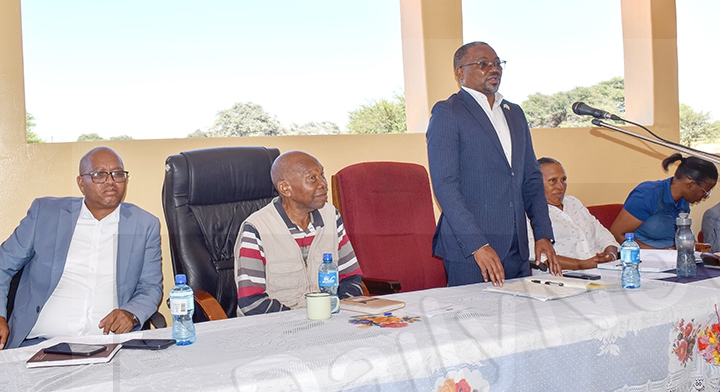Education hub to nurture growth and resilience
26 Aug 2024
After suffering a serious economic downturn as a result of the BCL Mine closure in 2016, Selebi Phikwe remained unshaken in the education sphere and continues to be at the apex of the top performing schools nationally.
This culture of academic resilience comes a long way as Selebi Phikwe prides itself with a long history of outstanding performance, with its schools dominating the Primary School Leaving and Junior Certificate examinations.
Meepong Junior Secondary School in particular remains the shining star of the copper mining town, having scooped position one in JCE for two consecutive years.
At the heart of this academic resilient culture lies Selebi Phikwe Technical College (SPTECO), which offers various programmes tailored to nurture growth and resilience.
Opened in 1987, SPTECO is one of the first four technical colleges to be established in the country with the aim to produce a competent, innovative and internationally competitive human resource that has the ability to contribute to the socio-economic and technological advancement of the country.
The institution currently offers a wide array of programmes including auto mechanics, welding and fabrication, electrical installation and maintenance, construction, clothing design and textile as well as secretarial studies.
“We have a total of 465 students, majority of them are from Selebi Phikwe and surrounding villages,” said SPTECO principal, Mr Victor Manyanda, in an interview.
He said since inception, SPTECO continued to make significant contributions towards the country’s economic growth in terms of education and skills development.
“A lot of industries including the mining industry relied on our graduates for skilled labour,” said Mr Manyanda
He said such called for an improvement in the quality of education offered by the technical college so that it produced graduates with qualifications that were relevant to the labour market.
Inspired by the Education and Training Sector Strategic Plan (ETSSP) 2015-2020, adopted by the Ministry of Education and Skills Development, the institution saw the need to shift gears, to align its programmes to international standards, hence the introduction of National Credit and Qualification Framework.
“Through this framework we are phasing out trade based programmes and have admitted the first cohort of students who will be doing semesterised programmes for a period of three years,” he said.
The ETSSP, he said, was intended to strengthen the match between qualifications and labour market requirements, thereby ensuring that education outputs were closely aligned to future employment needs.
In addition to improving the quality of education offered at the town’s sole institution of higher learning, SPTECO went further to make positive strides in building a strong relationship with various industries and companies.
Unlike in the past where technical colleges operated in silos without any stakeholder involvement, SPTECO has a different story to tell as it continues to enjoy unwavering support and partnerships from various stakeholders, locally and outside the SPEDU region.
“We have built a rapport with a lot of companies locally and outside the country to help lay the foundation for our students to venture into business or get employment,” said Mr Manyanda.
One of the companies that have come on board is the South African based Citrus Research International (CRI), which provides research and technical support to citrus growers and pack houses across the Southern African region and also offers training in citrus value chains.
“CRI has approached us and we are still in talks with them. Since we have a big citrus farm in our town, we want our students to benefit from that farm in many ways,” Mr Manyanda added.
Locally, SPTECO has collaborations with many companies, notably Dinesh textiles, which is the biggest employer of SPTECO students studying clothing design and textiles.
Selebi Phikwe Town Council, he said, had also been helpful in absorbing SPTECO graduates and had also offered them maintenance work at the 11 primary schools in town.
He said companies facilitated by SPEDU such as Kalahari Shade Nets and Oxygas had also contributed by offering attachments and employment to SPTECO graduates.
“We are still in talks with other companies and organisations, to make it easier for our students to be absorbed for employment and gain knowledge, which they could use to start their own companies in future,” said Mr Manyanda. ENDS
Source : BOPA
Author : Kgotsofalang Botsang
Location : SELEBI PHIKWE
Event : INTERVIEW
Date : 26 Aug 2024






